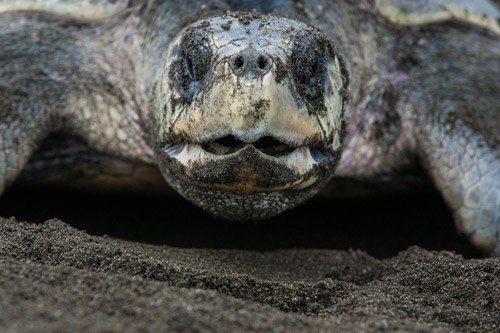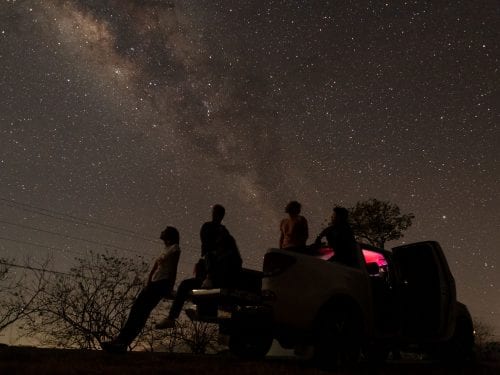
How many of us have forgotten our flashlights and stumbled in a moonless night to get home. It can be scary, but the alternative is much worse. As we all know, the Ostional Wildlife Refuge in Costa Rica was created in 1984 to protect one of the world’s most important nesting sites of the olive ridley sea turtle. But what some people do not know is that the lights from land along the coast disorients the turtles from nestling, creating a significant hazard for the Refuge.
While the Refuge is managed by the National System of Conservation Areas (SINAC) under the environmental ministry (MINAE) the ticos who have historically fished and lived in Playa Pelada and Ostional are threatened by removal by SINAC while the national legislature, another branch of government, is in the process of creating new law in conflict with SINAC regulation.
The new law is the result of intensive lobbying by the Territorios Costeros Comunitarios (TECOCO) that met in Samara this month to discuss their continue mobilization of coastal communities that have been displaced or threatened by tourism and gentrification. This social conflict has been characterized by TECOCO as rich versus poor or gringos versus ticos, an unfair and destructive portrayal of a complex problem in coastal communities from Sri Lanka to Honduras.
In Guiones and Pelada there are no high intensity streetlights or neon signs, lighted tennis courts or other distractions to disorient the turtles. The situation is Samara, for example, is different, since there is no biological refuge, only real estate that will either be protected from development or exploited by new tourism and residential projects.
At this writing, the legislature passed one of two hurdles and the Constitutional department of the executive branch has challenged the new TECOCO law. Eventually it will be headed to the third branch of government, the Constitutional Court to referee the conflict.
But the incendiary rhetoric surrounding this issue has little to do with the reality here in Nosara or nearby coastal communities. The Costa Rican government has concessioned huge Taiwanese fishing fleets to ply its waters, making local subsistence fishing difficult, if not impossible. This has nothing to do with tourism except that it makes sports fishing much more challenging.
The bottom line for our communities is that beach tourism and residential development is our economic engine, providing jobs and small business opportunity that have replaced ranching and fishing. TECOCO law, in its present form, simply perpetuates poverty rather than providing job training, better education and social services in what has become a vacuum now flooded with self-serving bombast, and little else.







Comments